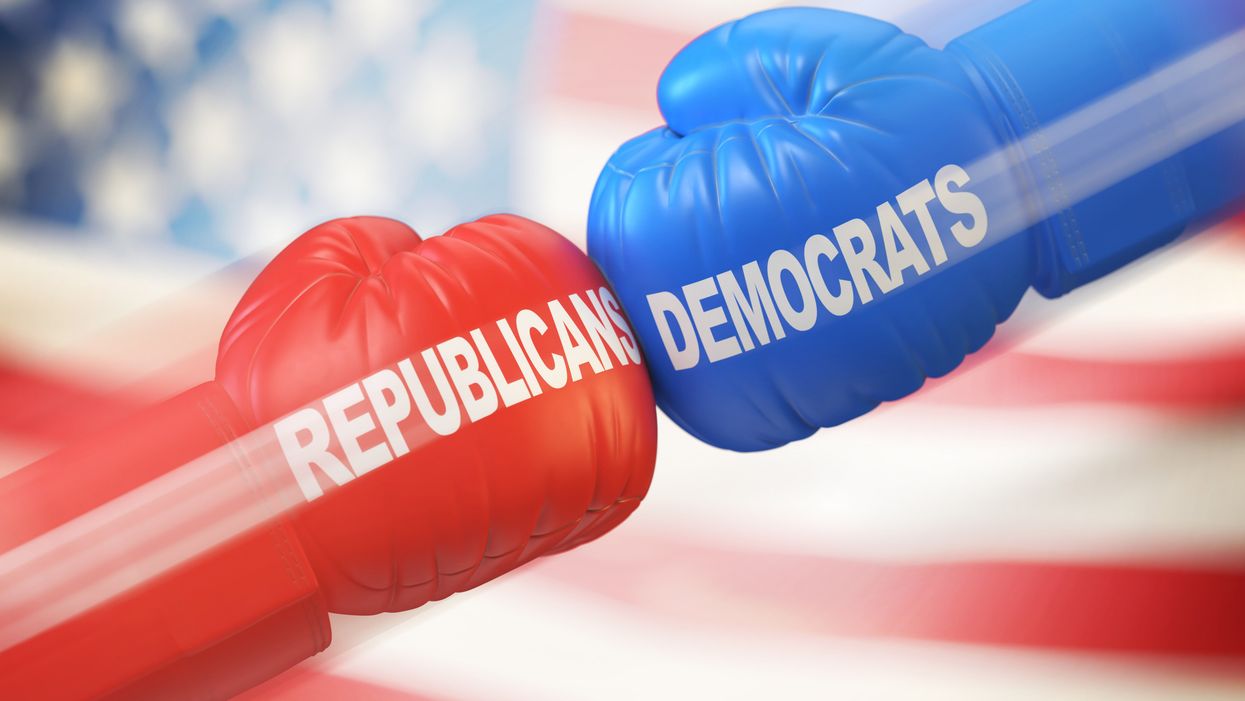Koenig graduated from Princeton this spring and will begin Harvard Law School next fall.
The consensus is that the first presidential debate was a hot mess. The consensus is correct. President Trump in particular seemed woefully uninterested in actually discussing and debating the pressing issues in American public life. He seemed more focused on repeatedly interrupting former Vice President Joe Biden and engaging in ad hominem attacks.
While the debate was surely unique in its eminently poor quality — and may never be precisely replicated, with Thursday's altercation canceled and next week's format up in the air — what's important to remember is this: What happened three Tuesday nights ago was not exactly an outlier from the contemporary American political scene.
Instead, it simply highlighted an important, depressing fact regarding American politics: These days, they can best be conceptualized as a boxing match rather than a foot race.
Citizens and politicians especially no longer seem particularly interested in pushing forward ideas and policy innovations; they seem more interested in engaging in the sorts of personalized rhetorical slugfests that characterized the first Trump v. Biden. Heated fights are no longer passionate but appropriate displays of the struggles over competing ideas and visions for the future. Instead, they have become the very essence — the entire point — of our politics. In this sense, the debate was not so much a low point because it was uniquely bad, but because it threw into sharp focus all that is wrong with our politics.
Even before Trump entered the Oval Office, our politics already had come to look more like boxing than running. Trump has quickened this shift. We have slowly forgotten the ultimate point of activism, seeking office and voting — of engaged and active citizenship — is not to "own the libs" or "cancel the conservatives." It is to promote the values and principles to which you ascribe as well as policies, the nitty-gritty substantive upshot of those values.
This is why it is best to conceptualize politics as a foot race, or a marathon, or even a relay between generations. It has a long, winding course for pushing ideas and policies forward. There may be rough encounters with competitors along the way, but the conflict isn't the point. It's a side effect of fallible humans trying to muddle their way through an ever changing and imperfect world, together.
Instead, we've come to look at politics like a boxing ring. A knockout is the only point. The content of the victory, and each fighter's character, matters much less than the victory itself. This is why coverage of American government is about the right hooks and left jabs of partisan bickering much more than any ongoing race between world views and policy visions.
We have shifted from a politics of contested forward motion to a politics of demonizing crossfire. Media coverage has helped catalyze and responded to this shift. Bickering and fights get the clicks. Nuanced debates don't.
The media isn't solely responsible, though. Also culpable are shifts that have made the two major parties more internally homogenous and different from one another. In 1950, the American Political Science Association lamented how the Republican and Democratic parties were both too ideologically diverse to offer distinctive choices and visions. In other words, liberal Rockefeller Republicans and conservative white Southern Democrats were still a thing, and the political scientists saw that as a problem.
A lot has changed since. As the University of Maryland's Lilliana Mason points out in "Uncivil Agreement: How Politics Became Our Identity," the two parties are capturing our racial, social and cultural divisions with increasing success. That is, Democrats are growing more progressive, brown and black. Republicans are growing more conservative and white.
This racial, social and ideological "sorting" can present serious problems.The "otherness" of the other side can push us to forget what this is all about. Our primary objective can subconsciously shift away from fighting for liberal or conservative values to fighting against the people who are liberal or conservative.
This subtle shift is not a distinction without a difference. Rather, it is what makes compromise with the other side — and even good-faith and substantive engagement — such a no-no.
When we view the other side as the problem, rather than the ideas for which it stands, we have taken an immense step toward political dysfunction. We have taken an immense step toward a politics and a political discourse devoid of problem-solving and legislation and full of tweets and reactions to tweets.
Even though I will be voting for Biden, this is why I am painfully aware the boxing match won't end if he's elected. A single election cannot overturn forces that have been stewing and gaining steam over several decades. Surely, a Biden presidency wouldn't push us even further into the ring than Trump's presidency has. But just as no one politician was responsible for this shift, no one politician can get us back on the running race course. Only structural solutions will do the trick.
Structural innovations that reconfigure incentives — like ending partisan gerrymandering, instituting ranked-choice voting, changing how parties structure their primaries and paving the way for new parties — are needed to push us away from boxing and toward the foot race. We need to think creatively about what incentives, structures, institutions and policies will help place ideals and ideas — not "othering," contempt and conflict — at the core of our political discourse.
If we don't, we will soon find that voting Trump out of office will not change nearly enough. Our politics of tweets and tantrums will outlast him. And anger, contempt, and violence will ensue.



















